A new geopolitical horizon after the arrival of the Taliban
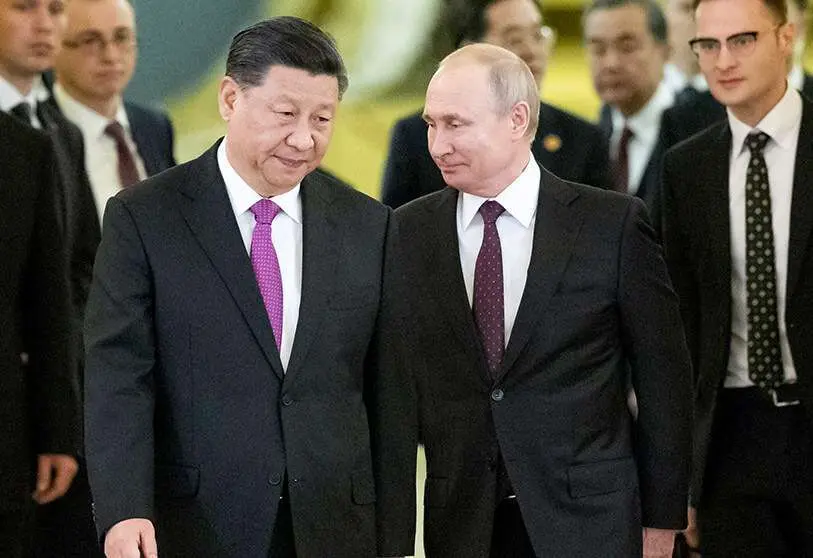
Ever since the Taliban began gaining ground in Afghanistan it has been known that, should they come to power, the geopolitical situation in the entire region would change completely, and it has.
The Middle East adds yet another headache to the geopolitical melee that for years has made the region one of the most - if not the most - unstable in the world. The Taliban's rise to power, unsurprisingly, opens up a wide range of possibilities for many countries, while at the same time having worrying consequences for practically the whole world. From agreements with China or Russia to the reception of refugees by the European Union. Many fronts have been opened after the arrival of the Taliban, and practically all of them have yet to be closed.
From the very first moment the takeover of Kabul became a reality, two superpowers positioned themselves favourably towards the forthcoming recognition of the new Taliban government. Moscow and Beijing made their positions clear at a time when the West was understandably more concerned about the evacuation of all embassy staff, translators and other diplomatic workers. As a result, China was quick to show its full support for the Taliban and even offered to help in the reconstruction of the country.
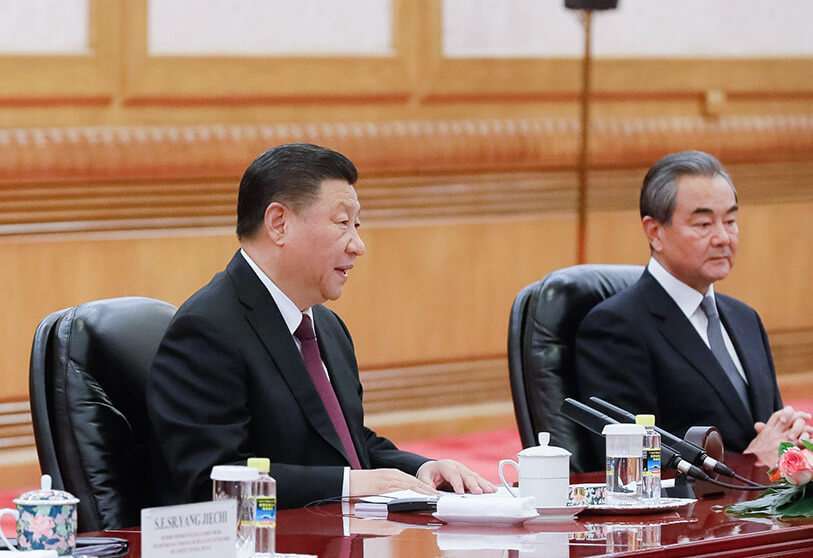
The Chinese do not want to invest in a country in constant strife - they do not seem to be focusing their efforts in the right place, if that is their priority - so they will maintain their support for the Taliban as long as their investments are secured and the country does not become a base for terrorists from across the region. Beijing is particularly concerned that the Asian country could become a haven for the more radical Uighurs, an ethnic group with which it is strongly at odds. Years ago, members of the East Turkestan Islamic Movement (ETIM) organised and planned some of the worst attacks the Asian giant has suffered. And it is precisely they who would pose a major threat to Chinese interests if they were able to take refuge in the Wakhan corridor.
Risky as it may seem, the Taliban are the best chance for the Chinese to maintain their investments. The rise of extremism in the region, especially in countries such as Pakistan, where many sectors have celebrated the Taliban victory, is what worries Chinese President Xi Jinping the most. At the end of July, the Chinese government received a Taliban delegation led by Abdul Ghani Baradar in Tajikistan. The victory of the extremists was an increasingly likely scenario, and Chinese Foreign Minister Wang Yi called for protection and security for his investments and citizens in the country, which has now given him a huge advantage over other countries.
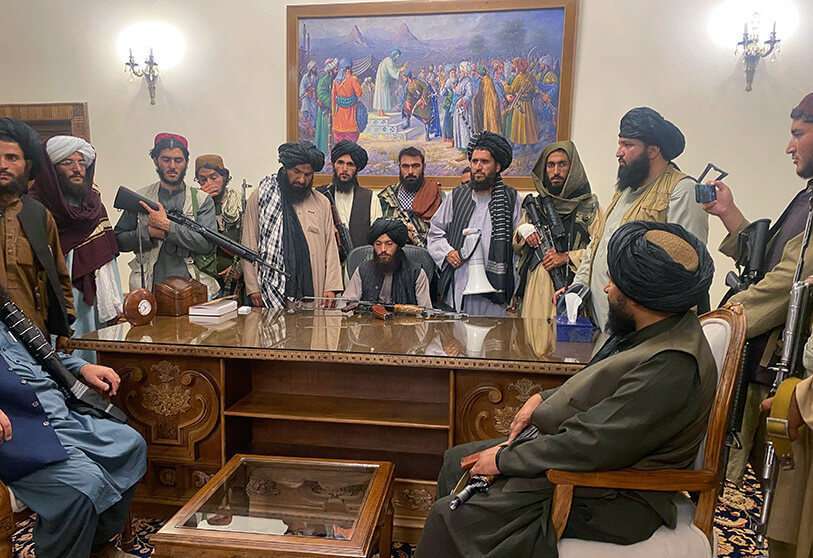
China will be crucial for the future of the region, but it will not be the only pillar of its strength. Pascal Boniface, founder and director of the Institute for International and Strategic Relations (IRIS), noted that "Pakistan is the big winner, as it is the Taliban's sponsor". Moreover, Pakistani Prime Minister Imran Jan celebrated the Taliban takeover of Kabul, saying that "Afghans have broken the shackles of slavery". It should not be forgotten that Jan himself was one of the key figures in Pakistan's mediation to facilitate the peace talks between the Taliban and the Trump Administration, which concluded in 2020 with the agreement to withdraw foreign troops from Afghanistan.

Pakistan's role in the issues surrounding terrorism has always been twofold. On the one hand, it was a close ally of the United States in the global fight against terrorists, but at the same time, they themselves were responsible for hiding Osama Bin Laden, the former leader of Al Qaeda and mastermind of the 9/11 attacks, on their territory. The way it dealt with the Taliban was also twofold. Within its borders it fought the Pakistani branch of the Taliban - Tehreek-e-Taliban Pakistan, which had carried out attacks in the country - while aiding and supporting the Afghan Taliban.
As noted at the outset, the key issue goes far beyond ideological ties. Pakistan's roadmap follows steps dictated by its geopolitical interests. Gabriel Reyes, project director of the Toledo International Centre for Peace (CITPax) and Cidob researcher and expert on the region, assures that one of the objectives that Islamabad has always had with its meddling in Afghan lands is to have a powerful ally in its conflict with India: "Afghanistan gives Pakistan strategic depth in its conflict with India", he said in a statement to La Vanguardia.

Reyes himself believes that "their (China's) main interests lie in Pakistan, where they have invested massively as part of their Belt and Road Initiative". But one should not forget Afghanistan's immense wealth, which China is understandably keen to capitalise on. Afghanistan's mineral resources are another argument for the Chinese to play an important role in this conflict. Iron, copper, chrome, zinc, lead and marble, as well as precious stones and key materials for technology, such as lithium and cobalt, are some of the most precious resources in Afghanistan's soil.
China is not the only country keeping a watchful eye on developments in Kabul. Vladimir Putin is another of the characters to watch - as in almost any conflict zone in the world. Moscow seems to be more comfortable with the Taliban in power than with Ghani. At least that is how the Russian ambassador to Afghanistan, Dmitry Zhirnov, put it, reflecting Russia's interest in sealing ties with al-Qaeda's historic allies. Zhirnov described the approach adopted by the Taliban in the first hours after the occupation of the capital as "good, positive and practical". In line with this, the Russian Foreign Ministry announced that it will keep its embassy in Kabul operational, as will the Chinese.

The Russian president's aspirations in Afghanistan are to keep border threats at bay. The rationale behind the Kremlin's collaboration with the Taliban over the past decade, despite having labelled the rebels a 'terrorist organisation' almost 20 years ago (in 2003). Russia's plans are to minimise US capabilities in Central Asia and set its agenda. In other words, this is yet another chapter in the geopolitical battle that Russia and China have been waging for years against the Americans and which, as we are seeing, is far from over and is spreading to every corner of the globe.
However, neighbouring countries must also be taken into account. One of the most important - as well as dangerous - is Iran. The more than 900 kilometres of border they share with Afghanistan pose a significant risk, especially since Iran is predominantly Shia, while the Taliban are Sunni - to complicate the situation even further. In any case, relations between the Islamic Republic and the Taliban are not entirely clear. Despite major differences, Tehran has admitted to hosting delegations of Sunni radicals in the past. Anti-Western sentiment seems to unite them and, in such a delicate situation, Iran will try to defend its interests in the country at all costs.
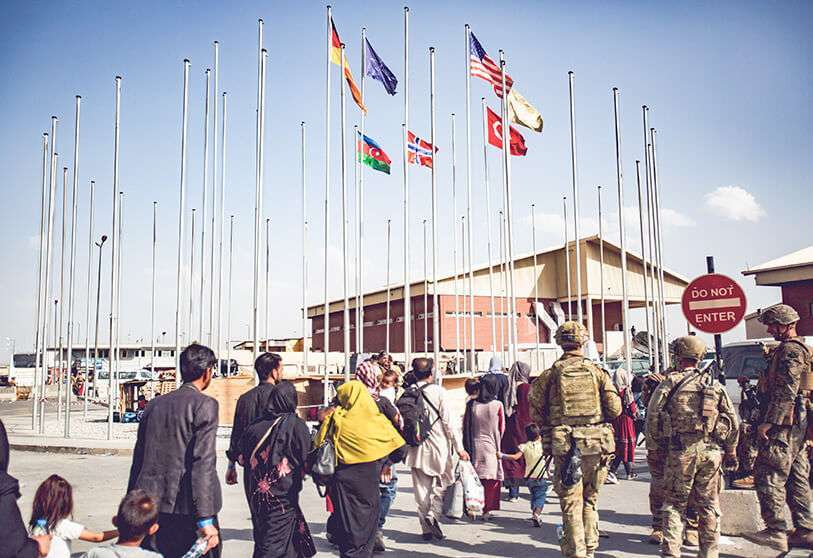
Ebrahim Raisi, Iran's new president, stated that "the defeat and withdrawal of the United States in Afghanistan should be an opportunity to restore life, security and peace in Afghanistan". Without showing strong support for the Taliban, he is beginning to show his cards and make it clear that rapprochement with the extremists is a possibility, even if there are abysmal differences between the two. This comes as no surprise, but the fight against the West will remain a priority.
And it is precisely Iran that finds itself in a delicate situation in another important aspect of this conflict: the refugee crisis. This is something it shares with its neighbour - and enemy - Turkey. Recep Tayyip Erdogan's leaders are the other protagonists in this chess battle that is being waged on a chessboard full of Afghan pawns struggling to escape from Taliban hell. It is worth remembering that both countries already have large numbers of refugees - 3.6 million in Turkey and just under 3.5 million in Iran. Moreover, tensions could rise sharply between the Turkish and Iranian populations, who have already repeatedly expressed their weariness with the incessant influx of refugees.
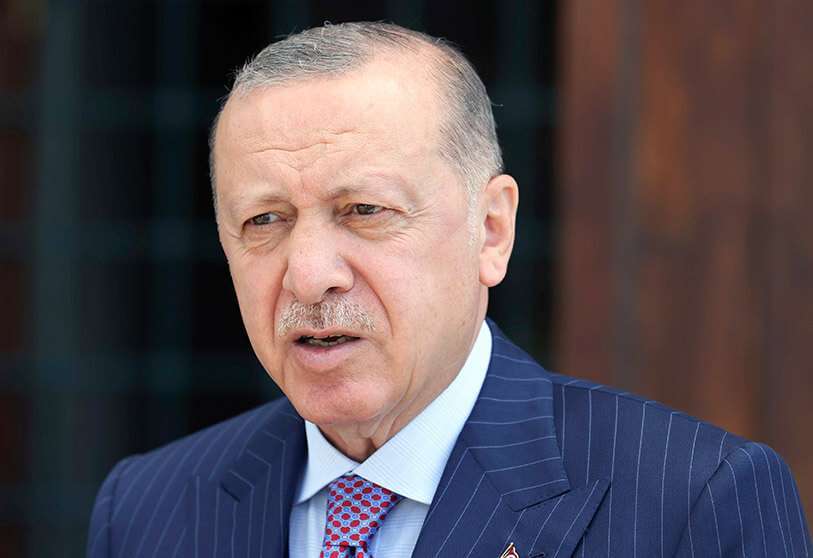
Erdogan was very clear as soon as the refugee issue was on the table: 'Turkey has no duty, responsibility or obligation to be Europe's refugee warehouse'. Up to 400,000 Afghans have been forcibly displaced so far in 2021, according to the United Nations High Commissioner for Refugees (UNHCR), only a fraction of whom have made it out of the country. In recent weeks, dozens of Afghan refugees have reached Turkish territory across the border with Iran, although Turkey "has no obligation to be a safe haven" for them, according to the Ottoman president's own words.
In addition, there are two countries that, for the moment, are maintaining a certain degree of caution in this crisis scenario. Saudi Arabia and the United Arab Emirates are two key players in everything that is happening in the region around the Persian Gulf. It is true that both established ties with the Taliban regime between 1996 and 2001, but it is also true that both withdrew their support after the 9/11 attacks in the United States and the Taliban's refusal to hand over Osama bin Laden to his home country. Precisely for this reason, the welcome return of the Taliban by armed groups present in the Gulf, such as Al Qaeda in the Arabian Peninsula, or by Palestinian factions and others considered "enemies", such as the Lebanese Shiite Hezbollah, has put Saudi Arabia and the UAE, which seek to be a reference point for the Muslim world, on notice.
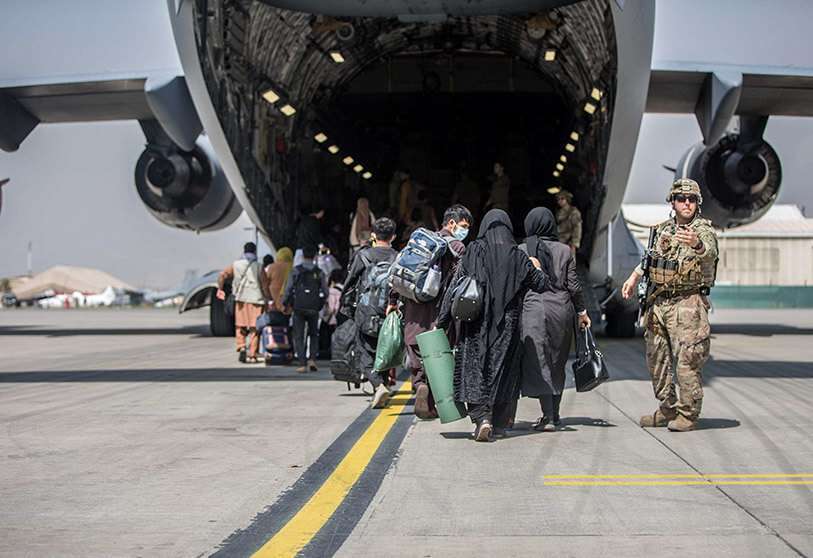
"Saudi spokesmen make their relationship (with the Taliban) conditional on Afghanistan not hosting groups that use weapons to promote change, based on an extremist interpretation of Islamic texts that make Saudi territories and civilians legitimate targets," Saudi political analyst Ali Bawazeer told Efe. This is, after all, the same concern that China has, in its case, due to investments in Afghan lands that it intends to protect at all costs. For its part, the UAE hosted Afghan President Ashraf Ghani and is participating in the process of evacuating foreigners and Afghans from the Afghan capital, in coordination with the US, and intends to host up to 5,000 people who will later be transferred to third countries.
The key now will be how the new Taliban government, which, at least so far, has not been recognised by Washington or the European Union, begins to establish contacts. The key in either case would be not to overly agitate an already complex situation. Otherwise, those who should be its greatest supporters - Russia and China - could perceive an instability that is in nobody's interest and that would turn Beijing's economic plan upside down. The game on Afghan soil seems to have only just begun, and the most important pieces have already made their intentions clear. Now it will be the turn of the Taliban themselves and their neighbouring countries to act cautiously under the watchful eye of the continental giants.









